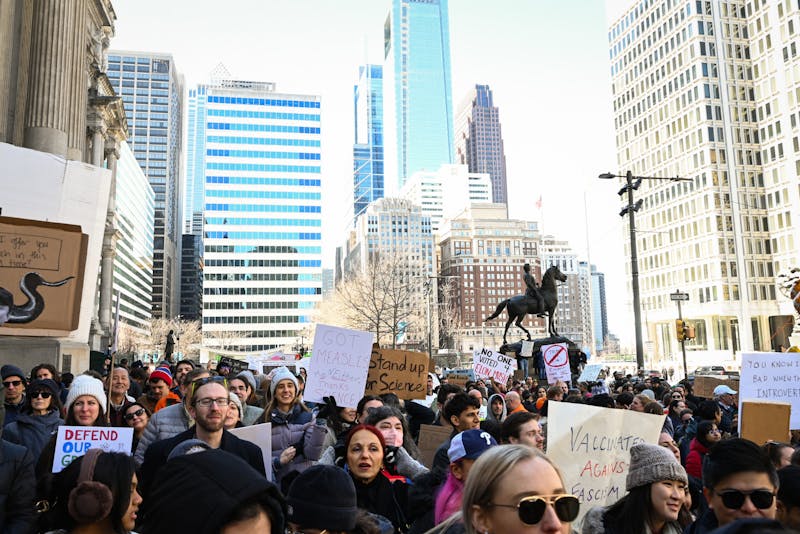University City residents voted overwhelmingly in favor of Democratic Presidential candidate John Kerry on Nov. 2, outnumbering supporters of President George Bush by more than five to one according to the final vote tally released recently.
The results in the 27th ward -- the UC area -- reflected those throughout the rest of the heavily Democratic city. In a bitterly divided election that saw record turnout across the country, nearly 62 percent of Philadelphia's eligible voters went to the polls.
Democrats and Republicans were encouraged by the UC results, though they said the split was unsurprising. Both said they gained votes compared to their 2000 election performance and were delighted by turnout.
"Last year we only had a third of eligible students voting," College Democrats chair and College senior Rich Eisenberg said. "This year we had just about everybody."
Eisenberg noted that the Democratic vote increase of 2,723 in UC was the largest in the city, and was probably due to students.
The local Republican Ward Leader Matt Wolfe also said that he could think of only a handful of people who did not vote.
But though turnout in the district rose by eight points in comparison with the 2000 election, still only 48 percent of all registered citizens in the ward voted. Some political analysts were baffled by the figure.
However, the turnout figure could be deceiving. Many people who no longer live in the ward -- or even the state -- remain on the registered voter rolls for years. This problem might be exacerbated in UC due to its high student population.
However, turnout among 18- to 25-year-olds nationally did not grow this year, said Fred Voight, who is executive director of Philadelphia's non-partisan political watchdog Committee of Seventy. "It's very disappointing given all the money and effort going into targeting that age group."
Pre-election wisdom said that young voters would probably turn out in large numbers and swing the result in favor of Kerry. Voight noted that many analysts argued that tracking polls were inaccurate because they excluded 18- to 25-year-olds who can only be contacted by cell phone. He believes that the statistics show that perspective to be wrong, and that young voters are still apathetic.
"The motor voter law makes it very difficult to remove people from the rolls," Wolfe said. "Penn students stay here for four years, vote here for four years, then they go away but stay on the voter rolls."
Wolfe claimed that cleaning up voter rolls was almost impossible, and therefore official turnout numbers would always be lower than the reality. Yet both he and Eisenberg said that the notable increase in voter interest and activity in the election signified the truth about student political participation.
The Daily Pennsylvanian is an independent, student-run newspaper. Please consider making a donation to support the coverage that shapes the University. Your generosity ensures a future of strong journalism at Penn.
DonatePlease note All comments are eligible for publication in The Daily Pennsylvanian.







